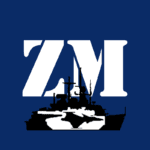The Portuguese Air Force recently reported the presence of a Russian Navy submarine and three Russian-flagged vessels crossing the country’s exclusive economic zone as part of its regular maritime control and surveillance operations. The vessels, traveling from north to south, were identified as the roll-on/roll-off cargo ships Baltic Leader and Sparta II, as well as the tanker General Skobelev. Regarding the submarine, it was the Novorossiysk, a unit heading north that, until a few weeks ago, was stationed at the port of Tartus, Syria.

In what marked the first 2025 operation focused on tracking non-NATO vessels, the Portuguese Air Force emphasized that this mission is part of patrol efforts “…to ensure the protection and integrity of maritime areas under national jurisdiction. Strengthening surveillance in the strategic space of national interest aims to guarantee constant and rigorous monitoring of movements in the area, contributing to the security of waters under Portuguese responsibility…”. Initially, the operation targeted the logistical vessels.
Hours ago, the Portuguese Air Force confirmed its second 2025 surveillance operation involving a non-NATO vessel. This time, it was the Kilo-class submarine Novorossiysk, which is moving north after being forced to leave Tartus following the fall of the Syrian regime.
Although the type of aircraft involved in the surveillance was not disclosed, the Portuguese Air Force operates C295M and P-3C Orion aircraft. It is worth noting that the FAP is incorporating six P-3C CUP+ units acquired from Germany. “…The six aircraft will now be integrated into the fleet of Squadron 601 – ‘Lobos,’ which already operates the P-3C CUP+ Orion version, responsible for ensuring sovereignty and surveillance of the Strategic Space of National Interest and covering the two flight information regions and search-and-rescue areas under Portuguese jurisdiction, one of the largest in the world. They contribute decisively to long-range search-and-rescue missions, ensuring the protection of human life in cases of accidents or emergencies at sea…” detailed the Portuguese Air Force at the time.



The Portuguese Air Force maintains constant surveillance activity, reflected in the number of operations: during 2024, FAP aircraft completed 29 tracking missions for non-NATO vessels. By December 30, 2024, 44 Russian vessels, three Chinese vessels, and one Indian vessel had been observed within the strategic space of permanent national interest.
Interest in the transit of Russian vessels has increased in recent weeks following the fall of Bashar al-Assad’s regime in Syria, particularly due to the need for Russian ground forces to evacuate Syria. This likely includes the transportation of hundreds of vehicles and various equipment, which could either move to Libya or return to Russia.
Among these activities, not always related to the Russian presence in Syria, there was a notable incident involving the sinking of the Ursa Major merchant ship. This vessel suffered an explosion and subsequent fire in its engine room, which caused it to sink within hours in Mediterranean waters. This ship had been observed in previous days by the Portuguese Air Force as part of the usual surveillance operations mentioned earlier.
You may also like: The United Kingdom has completed the training of 200 Ukrainian pilots who will be assigned to fly F-16 Fighting Falcon jets



